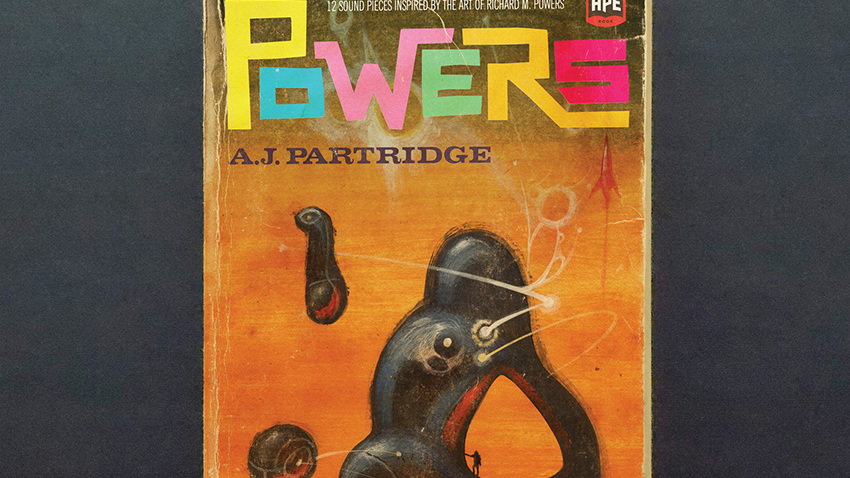You can trust Louder
Keeping up with XTC since they ceased full-time operations has been a full-time job: the Fuzzy Warbles series alone requires hours – days – of dedication. And now there’s Powers. Originally a limited release in 2010 (when it sold out), this now sought-after album is reissued as a mid-price, limited-edition (500-only) jewel-cased CD, packaged in a trompe l’oeil library book style, featuring 12 pages of sleevenotes and illustrations by longtime Ape House sleeve artist Andrew Swainson. But what is it? Good question. It’s a sort of soundtrack to the paintings of one of Partridge’s favourite illustrators, Richard M Powers, an experimental tour de force, a series of sound pieces, fragments, bleeps and tintinnabulations. Basically, it’s a labour of love from the former science fiction-obsessed kid (space travel’s in his blood) turned purveyor of playful art-pop. Not that his XTC-ish urges are remotely evident. No, over 12 tracks (helpfully numbered I-XII) Powers finds Partridge channelling his inner musique concrete-ist. It variously sounds like toyshop instruments gone dub, noises picked up on a transmitter from a far-off galaxy, and the motion of a giant spacecraft – or what we thought was a giant space-craft, which actually turns out to be a humongous future-creature with a giant tongue and claws. Or that could just be your humble reviewer’s own warped childhood obsessions.
Expect quark, strangeness and no little charm.
Sign up below to get the latest from Classic Rock, plus exclusive special offers, direct to your inbox!
Paul Lester is the editor of Record Collector. He began freelancing for Melody Maker in the late 80s, and was later made Features Editor. He was a member of the team that launched Uncut Magazine, where he became Deputy Editor. In 2006 he went freelance again and has written for The Guardian, The Times, the Sunday Times, the Telegraph, Classic Rock, Q and the Jewish Chronicle. He has also written books on Oasis, Blur, Pulp, Bjork, The Verve, Gang Of Four, Wire, Lady Gaga, Robbie Williams, the Spice Girls, and Pink.


